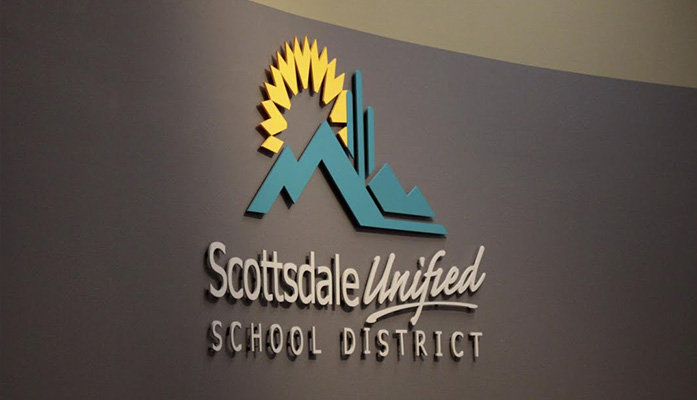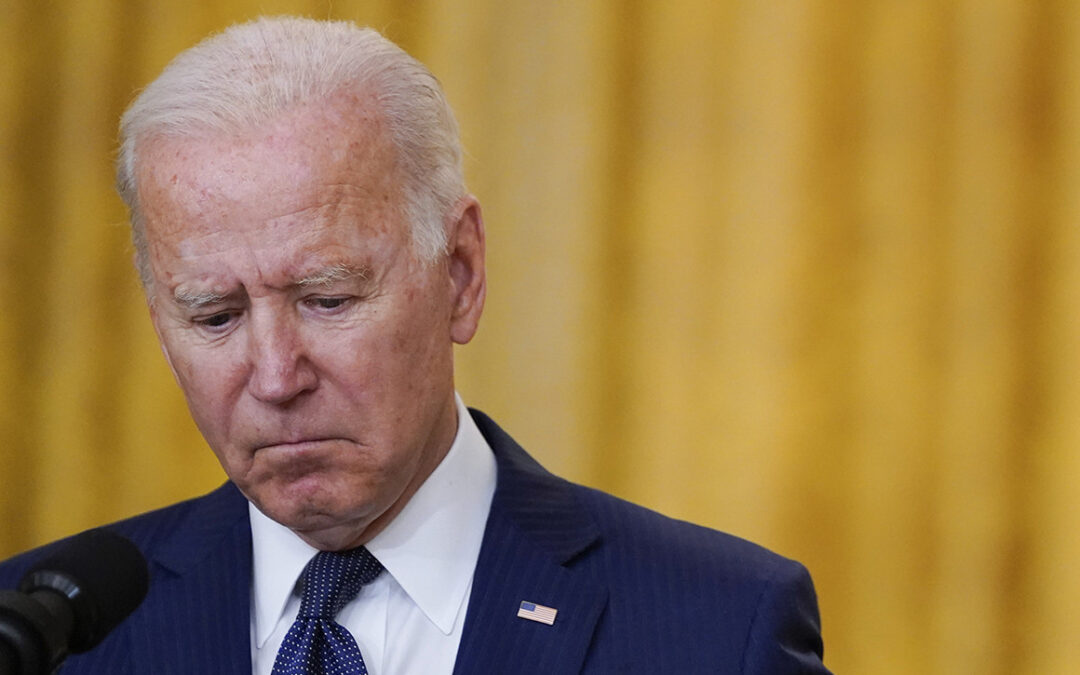
by Daniel Stefanski | Feb 19, 2024 | News
By Daniel Stefanski |
The Arizona Legislature is working to strengthen parental rights in the state.
Earlier this month, the State House of Representatives passed HB 2183, which “entitles parents with the right to receive from a healthcare entity equivalent access to any electronic portal or other healthcare delivery platform for their minor child,” according to the overview from the chamber. The bill, which was sponsored by Representative Julie Willoughby, received bipartisan support on the floor, garnering a vote of 32-25 (with three seats vacant).
In a statement after the House vote, Representative Willoughby said, “As healthcare delivery evolves, patients have increasingly varied avenues to access and communicate with healthcare providers. Yet, I’ve heard from parents who have been denied the ability to access their child’s medical records through an online patient portal. These portals are essential for parents to manage the care of their children, enabling them to contact pediatricians and specialists, schedule appointments, and refill prescriptions.”
Willoughby added, “Arizona’s parents’ bill of rights safeguards parents’ ability to make healthcare decisions for their minor children. My bill expands upon this protection, guaranteeing parents’ equal access to healthcare delivery platforms like online medical portals to care for their minor children.”
Before arriving on the floor for a vote from the whole chamber, HB 2183 was approved by the House Committee on Health and Human Services in January, with a partisan 6-4 vote.
HB 2183 was co-sponsored by Representatives Biasiucci, Bliss, Carter, Cook, Dunn, Gillette, Kolodin, Nguyen, Peña, and Speaker Toma.
On the Arizona Legislature’s Request to Speak system, Christine Accurso and a representative from the Center for Arizona Policy signed in support of the proposal. Representatives from Planned Parenthood Advocates of Arizona, American Civil Liberties Union of AZ, AZ Public Health Association, Children’s Action Alliance, Arizona Center for Women’s Advancement, NARAL Pro-choice America, National Council of Jewish Women Arizona, American College of Obstetricians & Gynecologists, Stonewall Democrats of Arizona, and Human Rights Campaign registered their opposition to the bill. Additionally, representatives from the Phoenix Children’s Hospital and Health System Alliance of Arizona noted their organization’s neutrality on the legislation.
The bill now awaits action in the Arizona Senate.
Daniel Stefanski is a reporter for AZ Free News. You can send him news tips using this link.

by Elizabeth Troutman | Feb 18, 2024 | Education, News
By Elizabeth Troutman |
Scottsdale Unified School District is on Parents Defending Education’s list of schools with gender support plans.
The gender support plan, filled out by school staff, caregivers, and students, allows schools to hide students’ identification as transgender from their parents.
The purpose of the document is to “create shared understandings about the ways in which the student’s authentic gender will be accounted for and supported at school.”
The district’s plan to support a minor’s transgender status despite parent support or knowledge appears to be in direct violation of the Arizona Parents’ Bill of Rights, which states that parents have the “right to make all health care decisions for the minor child.”
The form asks for the name the student uses, the name on their birth certificate, their gender identity, and so-called assigned sex at birth.
The “Parent/Guardian Involvement” section on the form measures parent knowledge of their child’s “gender status.” The form asks if parents are aware of the child’s gender status, then offers a scale of 1 to 10 to denote the student’s parents’ level of support.
“If support level is low, what considerations must be accounted for in implementing this plan?” the form asks.
The “Student Safety” section of the form establishes a “go to adult” at the child’s school, and asks “if this person is not available, what should the student do?”
In the “Privacy: Names, Pronouns and Students Records” section, the plan asks, “How will instances be handled in which the incorrect name or pronoun are used by staff members?”
The document asks for the “name/gender marker” on the student’s identity documents and entered into the Student Information System, as well as the name and pronouns to be used when referring to the student.
The form asks about what adjustments need to be made to protect the student’s privacy and who will be the point person for ensuring the adjustments are made.
Scottsdale also uses the document to denote what bathroom the student will use and where they will change clothes, demonstrating that the district would allow biological male students to share rooms, bathrooms, and changing rooms with females.
“What are the expectations regarding rooming for any overnight trip?” the form asks.
The district, which educates 22,000 students, also suggests that biological male student athletes would be allowed to play in girls’ sports.
“In what extracurricular activities or programs will the student be participating (sports, theater, clubs, etc.)?” asks Scottsdale Unified School District.
Elizabeth Troutman is a reporter for AZ Free News. You can send her news tips using this link.

by Daniel Stefanski | Feb 18, 2024 | News
By Daniel Stefanski |
Another lawmaker has been appointed to serve in the Arizona Legislature.
On Wednesday, the Maricopa County Board of Supervisors appointed Charles Lucking to serve in Legislative District 5, filling a vacancy from former legislator Amish Shah. According to a press release from the Arizona House Democrats, Lucking is a fourth-generation Arizona native who is employed by Community Legal Services.
Lucking said, “I’m very excited and honored to be representing LD 5 in the legislature. Arizona is facing a mountain of very complex challenges, such as our housing crisis. I’m eager to get started doing the hard work as a servant of the people to implement real solutions for all Arizonans.”
Bill Gates, the District 3 Supervisor on the Maricopa County Board wrote, “Charles Lucking is not only a long-time resident of LD-5, he is also a fifth generation Arizonan with a deep commitment to serving his community. When interviewing him, it was clear that he will be laser-focused on creating more affordable housing and addressing the budget deficit head on.”
Arizona House Democratic Leader Lupe Contreras added, “With the appointment of Charles Lucking, Arizona and our caucus has gained a passionate champion who is committed to use his legal expertise to address pressing social issues, including the housing crisis and environmental conservation. Deep roots and unwavering dedication to service, advocacy, and community empowerment will make Representative Lucking an impactful addition to our caucus.”
Lucking was sworn in to the State House of Representatives on Thursday.
Daniel Stefanski is a reporter for AZ Free News. You can send him news tips using this link.

by Daniel Stefanski | Feb 17, 2024 | News
By Daniel Stefanski |
Arizona Republicans are going to court yet again.
On Monday, the Arizona State Senate Republican Caucus announced that President Warren Petersen and House Speaker Ben Toma had filed a lawsuit against the Biden Administration’s “unlawful, dictator-style land grab last summer in northern Arizona.” The challenge, which “attempts to reverse Biden’s confiscation of nearly a million acres of land within Coconino and Mohave Counties,” was launched in the U.S. District Court for the District of Arizona.
Back in August 2023, President Joe Biden visited Arizona to establish the Baaj Nwaavjo I’tah Kukveni – Ancestral Footprints of the Grand Canyon National Monument. In his signed proclamation, Biden stated, “Protecting the areas to the northeast, northwest, and south of the Grand Canyon will preserve an important spiritual, cultural, prehistoric, and historic legacy; maintain a diverse array of natural and scientific resources; and help ensure that the prehistoric, historic, and scientific value of the areas endures for the benefit of all Americans.”
“This federal confiscation promises to wreak havoc on our local and state economies, jeopardize the livelihoods of our citizens, and compromise national security, all in an attempt to score cheap political points with radical environmentalists,” said President Petersen. “Biden’s maneuver is incredibly disingenuous, as it has nothing to do with protecting actual artifacts. Instead, it aims to halt all mining, ranching, and other local uses of federal lands that are critical to our energy independence from adversary foreign nations, our food supply, and the strength of our economy.”
Petersen highlighted the lack of defense against Biden’s executive overreach from the state’s Democrat attorney general, which has been a common refrain from legislative Republicans over the past few months. He said, “Needless to say, I’m incredibly disappointed our Attorney General has once again failed to carry out the duties of her office in defending our state against this reckless federal overreach and is instead showing her complicity with Biden’s extremist agenda. Nonetheless, we look forward to prevailing in court and for the president’s abuse of power to be reined in.”
Arizona Treasurer Kimberly Yee, another Republican, also joined in the lawsuit. According to a press release sent from her office, Yee signed on “as she is responsible for the receipt and investment of all revenue from Arizona state trust land.”
In a statement that accompanied her announcement, Yee said, “We must protect the value of state trust lands for the future of Arizona. This unlawful land grab by the Biden Administration will directly affect Arizona’s economy and the livelihoods of our citizens. The Federal Government needs to compensate the permanent school fund for the tens of thousands of trust land parcels left economically isolated by the stroke of the pen by President Biden. This big hand of government will hurt our K-12 education beneficiaries the most.”
Yee added, “The suit affirms that Congress passed the Antiquities Act to protect just that: antiquities. It did not pass the law to allow the Biden Administration to declare every inch of federal land a monument.”
Mohave County and the towns of Colorado City and Fredonia also joined the Arizona Legislature and the Treasurer’s Office in the lawsuit.
Daniel Stefanski is a reporter for AZ Free News. You can send him news tips using this link.

by Daniel Stefanski | Feb 17, 2024 | News
By Daniel Stefanski |
A bipartisan Second Amendment bill is making its way through the Arizona Legislature this session.
Earlier this week, HB 2617 cleared the Arizona House Committee on Military Affairs and Public Safety (MAPS). The proposal, which was sponsored by State Representative Alma Hernandez, would “lower thresholds for the juvenile restoration of firearm rights subsequent to a juvenile felony criminal conviction,” according to the overview provided by the Arizona House.
In a statement on the platform “X,” Hernandez said, “It was a super long day, but tonight, my bill, HB2617, passed out of committee! This bill will give youth the ability to destroy their juvenile record at 18 for most offenses; for other offenses, at the age of 25- it would allow youth who complete their court consequence proceedings to enter adulthood without the stigma of their past indiscretions.”
Representative Hernandez, a Democrat, added, “Currently, courts are denying the request of many 18 y/o to destroy their juvenile records because they are not eligible to have their gun rights restored at 18. This language has been confusing for years. Big thanks to 2 of my friends and juvenile public defenders who came to support and testify! It’s time to fix it. Thanks to all who supported me!”
The Arizona House Democrats Caucus “X” account also noted the achievement, writing, “Congratulations to Rep. Alma Hernandez for HB 2617 passing the Military Affairs & Public Safety Committee this evening! On to the Floor soon.”
The bill passed out of the MAPS Committee with a 13-1 vote. One member voted “Present” on the legislation.
On the State Legislature’s Request to Speak system, representatives from Stand for Children, Arizona Veterans, Pima County, and Arizona LeadingAge registered their support for the bill, while a representative from Arizona National Organization for Women registered in opposition.
Daniel Stefanski is a reporter for AZ Free News. You can send him news tips using this link.

by Daniel Stefanski | Feb 17, 2024 | News
By Daniel Stefanski |
Another Border Patrol agent suffered injuries near Arizona’s southern border.
On Tuesday, the Chief Patrol Agent of the U.S. Border Patrol’s Tucson Sector, John R. Modlin, announced that one of his agents had been injured while on duty. Chief Modlin wrote, “On February 13, 2024, at approximately 8:00 a.m., a vehicle being pursued by the Tohono O’odham Police Department struck a Border Patrol agent at the SR86 Immigration Checkpoint near Three Points, Arizona. Three Points Emergency Medical Services responded and determined the agent sustained non-life-threatening injuries; but airlifted the agent to Banner University Medical Center in Tucson, Arizona for treatment.”
Modlin added that the “Federal Bureau of Investigation and CBP’s Office of Professional Responsibility are investigating.”
The incident in the Tucson Border Sector follows a number of recent episodes where federal or local law enforcement agents have been injured at their southern Arizona posts. In October 2023, Chief Patrol Agent Sean L. McGoffin of CBP’s Yuma Sector announced that “a vehicle hit the checkpoint located on I-8 east of Yuma, critically injuring two of our agents. They are being treated for their injuries at a Phoenix-area hospital.”
Last fall, a Cochise County Deputy Sheriff was seriously injured as he attempted to stop a suspected smuggler, who was trying to evade apprehension in her vehicle. When talking to local media about the rash of similar incidents plaguing his county and department, Sheriff Mark Dannels said, “Just this week alone, I’ve had a patrol car damaged, I’ve had two officers, deputies that were trying to be run over by smuggler drivers. This is every day down here.”
Daniel Stefanski is a reporter for AZ Free News. You can send him news tips using this link.






